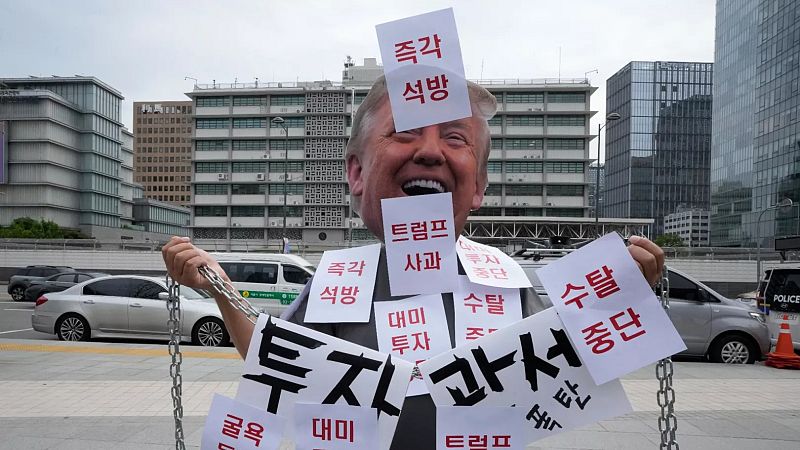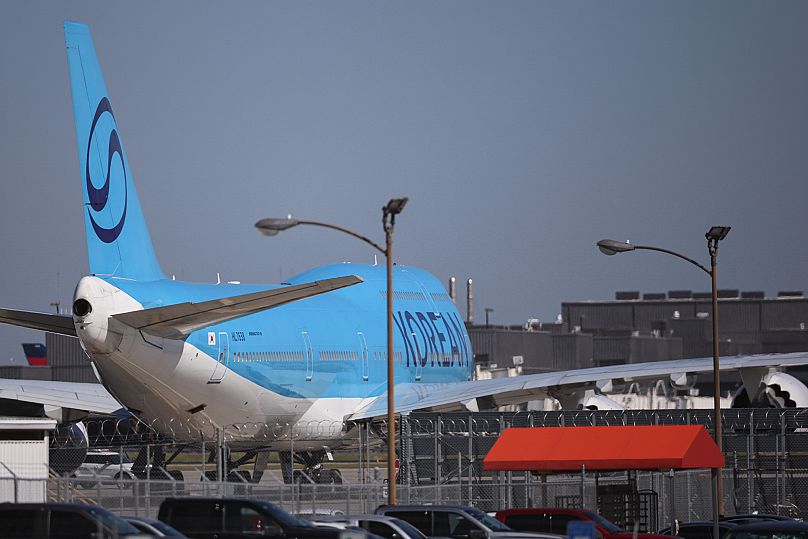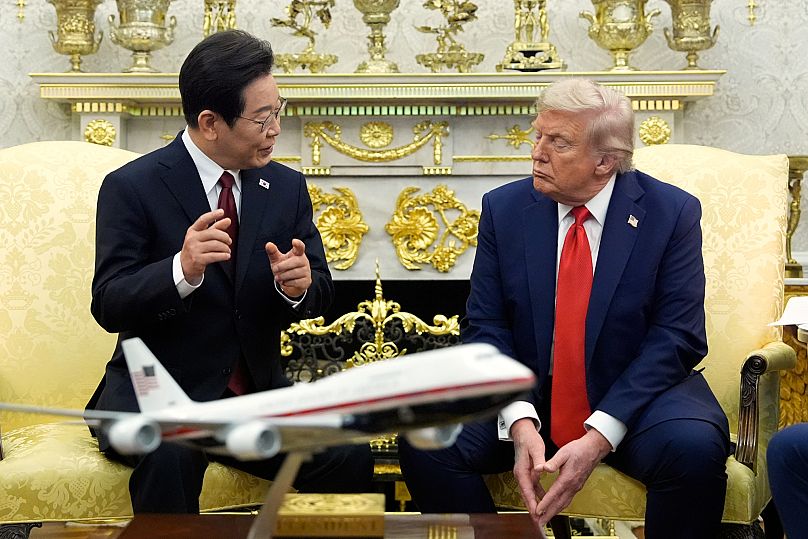South Korea sends plane to US to bring back workers detained in Hyundai ICE raid

A South Korean charter plane arrived in the United States on Wednesday to bring back Korean workers detained in an ICE immigration raid on a Hyundai plant in Georgia last week, though officials said the return of the workers will not happen as quickly as they had hoped.
A total of 475 workers, more than 300 of them South Koreans, were rounded up in the 4 September raid at the battery factory under construction at Hyundai’s sprawling auto plant.
US authorities released video showing some being shackled with chains around their hands, ankles and waists, causing shock and a sense of betrayal among many in South Korea, a key US ally.
Seoul later said it had reached an agreement with the US for the release of the workers.
Days of detention
South Korean TV showed footage of the Korean Air charter plane taking off from Incheon International Airport, west of the capital Seoul.
South Korea’s Foreign Ministry said it was talking with US officials about letting the plane return home with the released workers as soon as possible.
But it said the plane cannot depart from the US on Wednesday as South Korea had earlier hoped due to an unspecified reason involving the US side.
The Korean workers are currently being held at an immigration detention centre in Folkston in southeast Georgia.
South Korean media reported they will be freed and driven the 460 kilometres by bus to Atlanta to take the charter plane.
South Korean officials said they've been negotiating with the US to win "voluntary" departures of the workers, rather than deportations that could result in making them ineligible to return to the US for up to 10 years.
The workplace raid by the US Homeland Security agency was its largest yet as it pursues its mass deportation agenda.
The Georgia battery plant, a joint venture between Hyundai and LG Energy Solution, is one of more than 20 major industrial sites that South Korean companies are currently building in the United States.
Many South Koreans view the Georgia raid as a source of national disgrace and remain stunned over it.
Only 10 days earlier, South Korean President Lee Jae-myung and US President Donald Trump held their first summit in Washington on 25 August. In late July, South Korea also promised hundreds of billions of dollars in US investments to reach a tariff deal.
Trump said this week the workers "were here illegally" and that the US needs to work with other countries to have their experts train US citizens to do specialised work such as battery and computer manufacturing.
Seoul calls for improvements in US visa system
US authorities said some of the detained workers had illegally crossed the US border, while others had entered the country legally but had expired visas or entered on a visa waiver that prohibited them from working.
But South Korean experts and officials said Washington has yet to act on Seoul's yearslong demand to establish a visa system to accommodate skilled Korean workers needed to build facilities, even while it has been pressing South Korea to expand industrial investments in the US.
South Korean companies have been relying on short-term visitor visas or Electronic System for Travel Authorisation (ESTA) to send workers needed to launch manufacturing sites and handle other setup tasks, a practice that had been largely tolerated for years.
LG Energy Solution, which employed most of the detained workers, instructed its South Korean employees in the US on B-1 or B-2 short-term visit visas not to report to work until further notice, and told those with ESTAs to return home immediately.
Today



